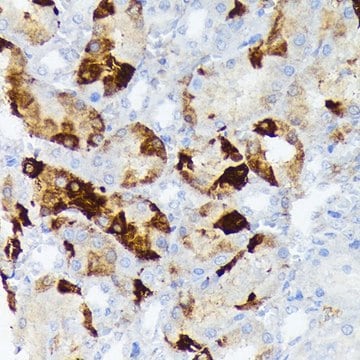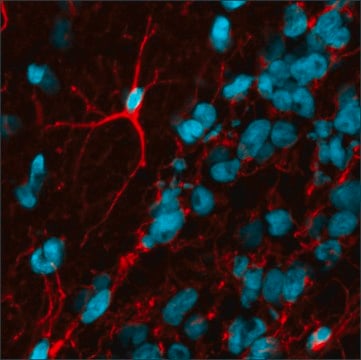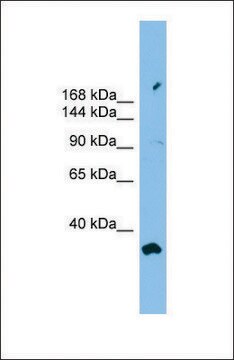AB3573
Anti-BCL-XL (pS62) Antibody
Chemicon®, from rabbit
Synonym(s):
Bcl-2-binding component 6, Bcl-XL/Bcl-2-associated death promoter, Bcl-2-like 8 protein, BAD, BBC6, BCL2L8
About This Item
Recommended Products
biological source
rabbit
Quality Level
antibody form
purified antibody
antibody product type
primary antibodies
clone
polyclonal
purified by
affinity chromatography
species reactivity
human
species reactivity (predicted by homology)
rat (100% homologous), mouse (100% homologous)
manufacturer/tradename
Chemicon®
technique(s)
western blot: suitable
NCBI accession no.
UniProt accession no.
shipped in
dry ice
target post-translational modification
phosphorylation (pSer62)
Gene Information
human ... BCL2L1(598)
General description
Specificity
Immunogen
Application
Apoptosis & Cancer
BCL2 & Inhibition
Quality
Linkage
Physical form
Storage and Stability
Analysis Note
SK-BR-3 cells treated with vinblastine.
Legal Information
Disclaimer
Not finding the right product?
Try our Product Selector Tool.
Storage Class Code
10 - Combustible liquids
WGK
WGK 2
Certificates of Analysis (COA)
Search for Certificates of Analysis (COA) by entering the products Lot/Batch Number. Lot and Batch Numbers can be found on a product’s label following the words ‘Lot’ or ‘Batch’.
Already Own This Product?
Find documentation for the products that you have recently purchased in the Document Library.
Our team of scientists has experience in all areas of research including Life Science, Material Science, Chemical Synthesis, Chromatography, Analytical and many others.
Contact Technical Service








